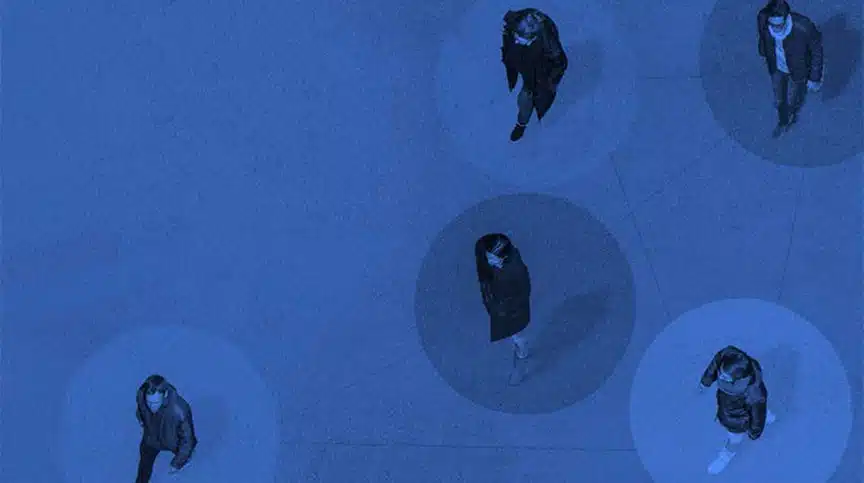Reexamine These 3 Common Beliefs & Seize the Opportunity to Change Workplace Culture
In this time of rapid change brought on by the COVID-19 pandemic, individuals, organizations, and communities around the world are facing an overwhelming number of urgent leadership issues. This disruption demands that we pivot quickly — or be left behind.
For leaders, it’s time to accept the challenge of the current moment and take strides to change workplace culture for good.
Our research shows that organizations can’t force change through purely technical approaches like restructuring or tweaking their strategy. What actually determines whether a new initiative or undertaking will be successful is the ability to sustainably change workplace culture.
Many leaders understand the importance of culture — in fact, it’s become a bit of a buzzword. But what they may not see is how once-vital aspects of organizational culture may, in fact, be stifling their progress today. Assumptions, behaviors, habits, and processes get built into company decisions and everyday interactions. It can be difficult to see when such things are no longer effective, and even more challenging to change.
That’s why to change workplace culture, leaders must question long-held beliefs, “unlearn” what they once knew, and reinvent their organizational cultures through bold actions.
Bolster Resilience to Change Workplace Culture
Unlearn the “More Is More” Work Ethic
The culture at many organizations, particularly at the beginning of the pandemic, embraced the “more is more” work ethic: employees must work harder and for longer hours.
In an always-on world with unlimited tasks and responsibilities, many workers have felt obligated to work harder and longer to get ahead — or just to stay afloat. An issue even before COVID, this problem was exacerbated during the pandemic as the lines between work and home life blurred.
The problem is that every additional hour of work does not equate to an increase in productivity. In fact, working too many hours undermines individual and team effectiveness, and diminishes performance over time. The better approach may sound counterintuitive: your employees actually need to be working less.
To prevent burnout, leaders need to revisit and replace the “more is more” mentality with a culture focused on building resilience. Employees across roles and levels must be encouraged — even expected — to rest, recharge, and recover, as a matter of personal effectiveness and wellbeing.
To foster sustainable peak performance for their teams in the months and years to come, leaders must change workplace culture norms.
Move Beyond Bias to Change Workplace Culture
Unlearn Simplistic Approaches to EDI of “Awareness Is the Solution”
Now more than ever, accessing the full potential of all of your talent is a strategic imperative. Studies have repeatedly shown that diverse teams drive better business performance, and that companies with more diversity become innovative, resilient, and better able to respond to the ever-shifting challenges in an unpredictable and virtual world.
Yet for too long, organizations have counted on “building awareness” to support equity, diversity, and inclusion (EDI).
Increased awareness alone won’t result in workplace culture change. Most organizations understand that it’s imperative to leverage all of their team’s talent, but employees in underrepresented groups consistently express that they don’t benefit from company-wide diversity & inclusion programs.
For most organizations, the belief that awareness is the solution to overcoming bias and enabling EDI has gotten in the way of meaningful actions that could have greater impact.
It’s not enough to provide training to employees about recognizing their own biases. Organizations must go beyond recognizing — and show people exercises, tools, and specific actions they can take to replace their existing biases in order to really change workplace culture in support of teams that are truly equitable, diverse, and inclusive.
Build Better Conversations to Change Workplace Culture
Unlearn the “Quantity Over Quality” Mode of Communication
Effective communication has always been the foundation of a healthy organizational culture. And in today’s unpredictable environment, as information changes and decisions are made quickly, clear communication with employees is critical.
However, in this drive to communicate, most of us naturally concentrate on writing and speaking in ways that ensure we’re understood. Few of us focus nearly as much on listening. When employees are dispersed and communication is virtual, communication is even more likely to be just one way.
But valuable insights and solutions can be unearthed when communication flows freely in all directions.
When leaders practice specific communication skills designed to facilitate better conversations, communication flows freely and accurately up, down, and across the org chart. Leaders get a clearer picture of what’s truly going on in their organizations. They become better equipped to engage their people, understand and respond quickly to changing needs, and drive accountability.
If your organization can unlearn the “quantity over quality” mode of communication and drive higher-caliber, more candid conversations, you can change workplace culture, find more effective solutions, and accelerate positive business outcomes.
Challenge & Change Your Workplace Culture to Move It Forward
Now more than ever, your organization looks for leadership to navigate this changing, unpredictable world.
So, what’s the path forward? It’s not as simple as finding the right strategy — you must question long-held, likely unexamined beliefs and unlearn the outdated norms that are stifling success.
Learn more about the 3 common beliefs that are likely holding you back, along with practical tools and actions you can take right away to change workplace culture at your organization, by downloading our white paper and playbook below.
Download Our Playbook
Download our white paper and playbook to learn more about these common misconceptions and specific ways that your organization can change workplace culture to position itself for success in the post-pandemic world.









